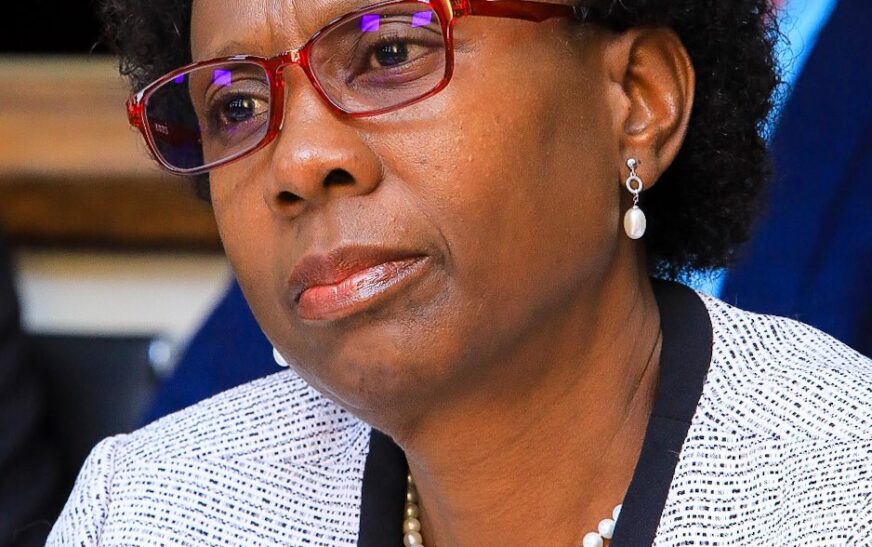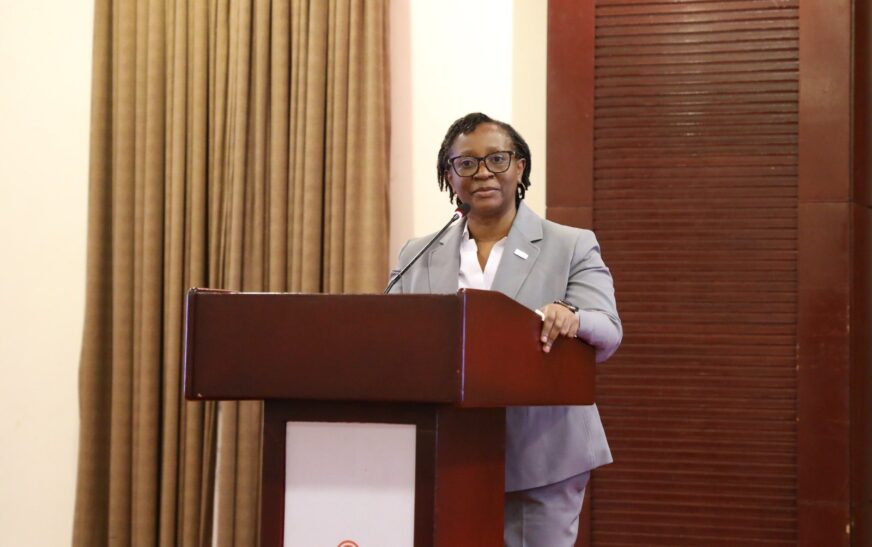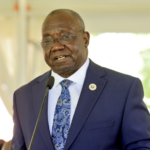The Minister of Health, Dr. Ruth Aceng, has revealed that Uganda lost Shs 604 billion in funding due to the U.S. government’s decision to cut foreign aid worldwide. This funding supported crucial health programs, including HIV/AIDS, malaria, tuberculosis, nutrition services, and payment of salaries.
Dr. Aceng made this appeal during a meeting with Parliament’s Health Committee to discuss the 2025/26 Ministerial Policy Statement for the health sector. In January 2025, the U.S. government announced an immediate 90-day suspension of all foreign assistance, including funding from the President’s Emergency Plan for AIDS Relief (PEPFAR). The U.S. had been a major contributor to Uganda’s fight against tuberculosis, malaria, maternal and child health, family planning, and HIV/AIDS. Over 1.2 million Ugandans currently receive antiretroviral treatment through U.S. support.
Dr. Aceng urged Parliament to find alternative funding sources to reduce reliance on foreign aid.
“The implementation of the U.S. President’s Executive Orders, effective January 20, 2025, resulted in the global reduction of foreign aid. As a result, Uganda lost over Shs 604 billion in U.S. funding,” she stated.
Breakdown of Lost Funding: HIV/AIDS programs – Shs 243.2 billion; Malaria control programs – Shs 121 billion; Support for human resources for health – Shs 67.8 billion; Tuberculosis (TB) programs – Shs 60.2 billion; Health information systems – Shs 36.9 billion and Health care waste management – Shs 22.2 billion.
Closure of Standalone Clinics and Medication Shortages
In a recent interview, Kyakunzira Laura Angel, who has lived with HIV since childhood, noted that USAID-funded standalone clinics are struggling to operate. While some are beginning to reopen, others, such as the Infectious Diseases Institute (IDI), remain closed. This has created significant hardships, with some patients skipping doses or taking medication inconsistently.
“There is growing concern about what will happen when the remaining drug supplies run out. Many patients relied on USAID-funded clinics, such as those run by Baylor, which have been heavily affected by the funding halt,” she said.
When funding was suspended, some clinics, including Kawala and IDI, managed to notify patients to collect refills for up to 90 days. However, many patients missed the information due to the abrupt shutdown.
“Follow-up calls stopped, airtime was cut off, and transportation services were frozen. Many patients were left stranded, unable to access life-saving medication,” she added.
People with disabilities, who previously received door-to-door medication deliveries, have been particularly affected. Even clinics that have partially reopened are struggling to meet demand.
“Things are far from normal. I personally received my medication from Baylor’s main branch in Mulago, which remained open due to alternative funding sources. Fortunately, I had received a refill from December 2023 to May 2024. However, follow-up activities and medication delivery have been suspended, leading to long queues at the clinic,” she said.
Rising Costs and Fear of Drug Inaccessibility
A mother living with HIV expressed deep concern about the future, as both she and her husband rely on medication from different clinics. She had just given birth days after the U.S. funding halt and feared that HIV treatment would become unaffordable.
“We were told that if the U.S. completely withdraws its funding, HIV medication will become unaffordable, especially with the current economic hardship. Initially, we struggled to afford basic needs and a proper diet since ARVs require good nutrition. Now, buying medication for both of us will be an added burden. We don’t even know how much it will cost,” she said.
Three days after the suspension, she was charged Shs 10,000 for Nevirapine, a drug that prevents mother-to-child HIV transmission. Shockingly, after giving birth, she had to pay again for the same drug for her newborn, a medication previously provided free of charge.
She also noted that peer mentors and educators have stopped working because their salaries were funded by the now-closed clinics.
Call for Government Action
With the loss of USAID funding, the Ugandan government faces the urgent task of ensuring sustained healthcare support for vulnerable populations. Dr. Aceng has called upon Parliament to prioritize healthcare funding to mitigate the crisis and prevent further disruptions to essential medical services. The fate of millions now depends on swift and decisive action.





















